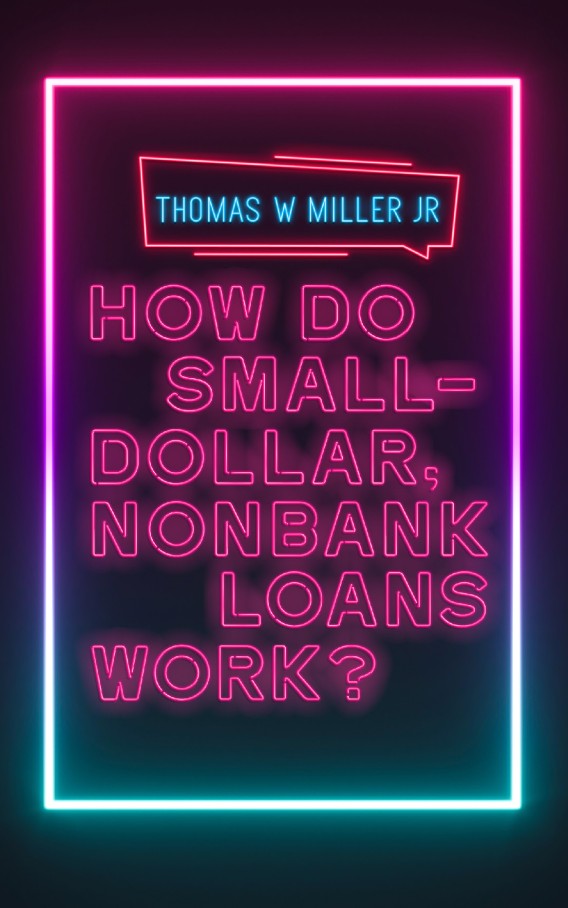
Millions of Americans rely on small-dollar, non-bank-supplied credit products: payday, pawn, vehicle title, and personal installment loans from finance companies. Many features of these vital products, however, are not well understood. This book contains explanations of how these loans work, what features they share, and how they differ. Readers seeking to understand these products might learn something surprising. For example,
- Pawn transactions are not loans in the traditional sense.
- Interest rate caps influence the size of installment loans.
- The length of a payday loan affects its annualized interest rate.
This objective guide is a must-read resource for legislators, regulators, journalists, and anyone else who cares about access to, and regulation of, small-dollar credit.
About the Author
Thomas W. Miller Jr. is a senior affiliated scholar with the Mercatus Center at George Mason University whose research for the Program on Financial Regulation focuses on small-dollar loans. He is also a professor of finance and the inaugural holder of the Jack R. Lee Chair of Financial Institutions and Consumer Finance at Mississippi State University.

